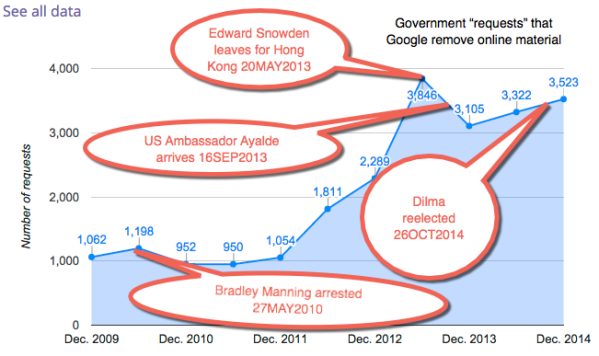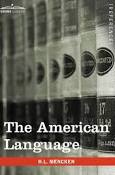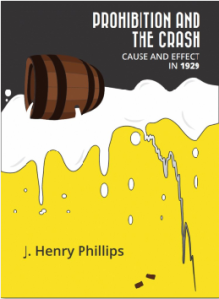
Prohibition and The Crash, on Amazon Kindle
Losing is Winning
Milton Friedman, in “Free to Choose,” made the observation that the Socialist platform of 1928 had become the law of the land — albeit in watered-down form. (pp 286-7 & Appendix A) Without the practical campaigning on political platforms designed to elect their candidates, year after year, decade after decade, the Socialists would have accomplished none of this. Yet their candidates lost practically every election. The prohibitionists likewise consistently lost, yet managed to amend the Constitution to prohibit the sale, manufacture and transportation of any liquid containing even the slightest trace of beverage alcohol. How is it that they who lose the elections get their platform planks enacted and enforced as the supreme law of the land? By what standard does one distinguish between winning and losing?
Looking backward over the evolution of political party platforms in America, the most startling observation is that every major change in national legislation had its origins in the platform some third, fourth or fifth party of political also-rans. Because of their familiarity and impact, the income tax and prohibition enactments are as good as any example to illustrate how this works.
National Prohibition
American colonies imported molasses from French and Dutch colonies in the Caribbean for distillation into rum. British taxes on those imports (not tea) were one of the primary causes of the American Revolution. After the Revolution, an excise laid on liquor by the nascent and debt-ridden US government sparked the Whiskey Rebellion. Excise taxes on alcohol helped fund the Union’s side in the War Between the States. Opium wars waged by the British Empire — to overcome Chinese prohibition of the drug cultivated in British India — horrified Americans already appalled by European colonialism. Alcohol seemed no less evil in effects seen on Indian reservations and among the natives of Africa and Polynesia. To practical politicians, the liquor, beer, saloon and patent medicine industries were sources of tax money, political support and campaign contributions. Yet to the sensitive nostrils of the Prohibitionists, such “paltering” with the “traffic” only laid bare the corruption which permeated the major parties.
The National Prohibition Convention assembled in Chicago in the fall of 1869. After deciding that the “traffic” in intoxicating beverages was a dishonor to Christian civilization, they resolved to wipe it out with the force of state and national law. Their political platform revolved entirely around that one issue as they resolutely pushed their puny statecraft into the turbulent seas of national politics in 1872. The Republican and Democratic parties were alarmed enough to promptly hedge their political platforms with warnings against laws they described as “unconstitutional” and “sumptuary,” depending on who was talking. The major parties spoke with different words—but a single voice—in denouncing an insurgency of crackpots. After all, several New England states had tried prohibition in the 1850s with disastrous results. Still the insurgency grew.
The Income Tax
The income tax made its explicit debut as a platform plank in the Communist Manifesto, published in German in 1848. The Manifesto was translated into English in the pages of a British magazine called “The Red Republican.” That expression burned its way into America’s literary conscience in “Uncle Tom’s Cabin,” by Harriet Beecher Stowe, before there was a detectable Republican Party in America. The word “income” itself meant different things to different people, but taxes were always exactions. Southern resistance to import tariffs had led to talk of secession as far back as the Andrew Jackson Administration, when state “nullification ordinances” making tariff collection illegal were quashed by the federal government. In the heat of the Civil War, the Union government, strapped for cash, enacted an income tax on July 1, 1862. This unpopular capitation tax was finally repealed and its “revenuers” disbanded December 24, 1872. The income tax was resurrected and entered American electoral politics with the 1880 platform of the Greenback Party, where it was formally introduced as a tax on “property,” and offered as an alternative to high tariffs on imports.
The Spoiler Effect
After the panic of 1873, severe economic depression worsened by monetary contraction brought sudden popularity to the idea of using the government to take from others. The Greenback Party tallied up 300,000 votes in excess of the difference between the popular votes gotten by the Republican and Democratic parties. Granted, this was an unusual and hotly-disputed election in which the electoral college and popular vote counts gave different results. Still, the Greenback vote was 160 times the size of the gap between winner and loser.
The Prohibition Party, was a more familiar insurgent, its platform predating the Panic of 1873. To John D. Rockefeller, the Prohibition Party was preferable to a party advocating an income tax, and in 1882 he began donating one million gold dollars each year to the Prohibition party’s war chest. In the campaign of 1884, the prohibitionists tallied a vote count five times the size of the gap between winner and loser, gaining ground on the Greenbackers.
The Greenbackers were flanked by the Anti-Monopoly party which eliminated all ambiguity by advocating “a graduated income tax; and a tariff…” in a single sentence during the election campaign of 1884. Again its vote count was a large multiple, 700%, of the spread between winner and loser, but the Prohibitionist vote tally was now equal to 600% of the spread.
Leveraging the Spoiler Effect
We can visualize this ratio of the spoiler vote to the actual vote spread between winner and loser as a “spoiler effect lever.” For units of length, we substitute the ratio of tallies in the popular vote count to the popular vote count gap between the winning and losing parties. The larger the third-party vote count compared to the difference between the popular vote count tallied by major party winner and losers, the “longer” the spoiler effect lever. The longer this spoiler effect lever, the more effectively it works to shift the policies (in the form of platform planks) of at least one of the two major parties.
Rockefeller’s campaign contributions, combined with partial recovery from the depression which followed the panic of 1873, changed the relative lengths of those third-party spoiler vote levers. This, in turn, changed the willingness of Democratic and Republican politicians to “lift” planks published in third-party platforms in hopes of bringing voters clinging to those planks over to their own columns. Republicans immediately realized that they could have easily defeated Grover Cleveland with the votes of either splinter party. Indeed, they unseated Grover Cleveland and took back the White House by running Benjamin Harrison – a “dry” married to “Lemonade Lucy” a famous temperance advocate — in the next election.
The People’s Party of America dusted off the income tax plank and inserted it into its own recipe for a populist kleptocracy in 1892. They were joined in that endeavor by the even shriller Socialist Labor Party. For purposes of calculating our spoiler effect lever lengths, all of these parties advocating an income tax law may be lumped together as “Looters.” Republicans and Democrats alike, however, limited their platform recommendations to monetary and tariff issues while sizing up the swelling ranks of mystical prohibitionists and predatory collectivists. Regulatory enactments by the lame-duck Republicans, coupled with the financial collapse of the Panama Canal venture, brought economic disaster to the U.S. even as the victorious Democrats cheered the Cleveland Administration into office.
Lobbyists of the looter persuasion saw their opportunity and swarmed out of the woodwork. When they began pressuring Congress to add income tax provisions to the tariff act then under debate in Congress, the crisis worsened into what we now refer to as the Panic of 1893. The tax finally passed in 1894 but was struck down by the Supreme Court the following year. Only afterward, in the campaign of 1896, did the Democratic Party add garbled language to its platform which at least bore some resemblance to an endorsement of a federal income tax. This the Republicans politely ignored until Theodore Roosevelt began loudly clamoring for an income tax from the bully pulpit.

Figure 1. Graph of the spoiler vote tallies garnered by parties advocating a “progressive”
income tax (red) and compulsory prohibition (blue). Bars below the horizontal line indicate vote tallies smaller than the difference between the popular vote count of the winning and losing parties.
A plank endorsing submission of an income tax amendment was finally added to the Democratic Party platform in 1908, with William Jennings Bryan the standard-bearer for the looter faction. Five parties were suddenly throwing their combined weight behind the income tax — the Democrats, Independence, People’s, Socialist and Socialist Labor parties – yet the aggregate vote tally of the four smaller parties was still smaller than the gap between winner and loser. The Prohibitionists’ spoiler effect lever, though longer, was also shorter than the vote gap. Even though they “lost” the election in 1908, the looters nonetheless got their income tax amendment while William Howard Taft was President.

Figure 2. Graph of the spoiler vote totals divided by the gap between willing and losing party.
Even when the spoiler vote is smaller than the gap, passage of the Prohibition amendment proves that the leverage effect is still large.
In the 1912 Election Campaign, when Theodore Roosevelt defected to the looter side of the fence, the spoiler effect lever in the hands of income tax proponents once again grew in length to three times the size of the gap between winner and loser. In the five previous elections, neither the Prohibitionists nor the various looter parties had managed an aggregate vote count larger than the popular vote gap between winner and loser. But in 1912, even as Theodore Roosevelt’s Progressive party so dramatically tipped the scales toward the looter position, the Prohibitionists also rallied with a tally nearly 800,000 votes larger than the gap in the popular vote. Their prohibition amendment was ratified into the Constitution in January of 1919, less than three years after the income tax.
Ten years ago, assembling this sort of data was a frustrating endeavor for individual researchers. Thanks to the Wikipedia anyone with an internet connection can reconstruct this information. For practically any major issue, the pattern is the same: some group of committed individuals organizes a political party and offers a platform encompassing their views, championed by candidates competing for votes. Sometimes there are many groups and many platforms, but the planks and the vote tallies are what matter to the politicians, and the politicians, after all, are the ones who make the laws.
Conclusions
In a great many elections nowadays, the difference between winning and losing parties is typically a matter of a few percentage points. History shows us that if an outside party consistently manages to garner a few percentage points, election after election, the number of votes they win will often be larger than the difference in the number of votes between the winning and losing parties. The payoff for their persistence occurs when one or the other of the dominant parties, covetous of those “wasted” votes, steals a plank from that party’s platform.
Although news to the voters, this was certainly old hat to professional politicians holding office during the Vietnam war. Back in those days, the Democratic and Republican parties saw their supremacy challenged by the upstart libertarians, whose platform was first published in 1972. Like the Democrats who in 1932 swept Franklin Delano Roosevelt into office on a platform to repeal national prohibition, the libertarians offered to repeal even those sumptuary laws banning substances other than alcohol – things like marijuana. This was anathema to the Republicans, who clung fanatically to all forms of prohibition. The Democrats in 1916 reelected Woodrow Wilson for keeping America out of World War I and the involuntary servitude of military conscription — never mind that they were betrayed. The Libertarians in 1972 promised to end the draft. To this day, neither of the major parties’ candidates, keenly mindful of the Libertarian party, dares to publicly advocate the forcible impressment of youth as cannon fodder.
For the first time in history we have a third party advocating freedom — not prohibition, nor government extortion of the populace. Yes, they do face opposition in the latest reincarnations of the looter persuasion. The New Left has mutated into the Green Party, which seeks to resurrect National Socialism on environmental rather than racial grounds. Since the collapse of communism, however, parties advocating government control and confiscation of everything have lost a lot of momentum. Because of this, and because of the spoiler effect lever, individual voters can make a tremendous difference by voting for the Libertarian party.
If by winning you mean rewriting the law of the land to give individuals greater freedom, a vote for the Libertarian party is never a wasted vote. Quite the contrary. When a minor party achieves 5% of the vote, the spoiler effect kicks in and converts the platform planks they advocate into highly valuable assets. The major parties need 10 times as many votes to accomplish what they want: putting this or that particular clown in front of the TV cameras while they quietly rob your money. The Republicans and Democrats understood this perfectly in 1972, before Richard Nixon was tossed out of the White House. Before the ink was dry on the Libertarian platform, these entrenched parties had already enacted legislation promising government subsidies to looter parties.
The Libertarian Party, dubbed the “Party of Principle,” was morally opposed to that sort of boodling. This commitment and integrity appealed hugely to Republicans, Democrats and Socialists alike. Media corporations also understood the message very clearly: we, the Democratic and Republican parties, will take money from the taxpayers and transfer it to your bank accounts if, in exchange, you will waste no opportunity to keep the Libertarians out of the picture. The value proposition was of course couched in sophisticated language and given such sonorous titles as The Federal Election Campaign Act of 1971 (P.L. 92-225) and The 1971 Revenue Act (P.L. 92-178) –See: The Nixon Anti-Libertarian Law.
Papering the thing over with sanctimonious guff did not change its nature. These laws were in the nature of a bribe, paid by the dominant parties to the print and broadcast media with money taken from the taxpayers for purposes of taking more money from those same taxpayers. The effects are not that different from the scattering of reflective chaff or the jamming of telemetry signals Congress was called upon to consider as part of the arms race at the time. The beneficiaries are the entrenched political parties, their lobbyists and hangers-on. Look where the money went: artificial candidates appeared, touted by all of the major networks and radio stations as “the” third alternative. Does anyone remember a single thing Eugene McCarthy or John Anderson stood for that was different from the Republicans or the Democrats?
Despite the wholesale purchase of advertisement for votes, the libertarians offered the only consistent platform, and in the election campaigns of 1980 and 1984 its candidates eclipsed artificial candidates manufactured by the media corporations. Ronald Reagan managed, by posing as a neo-laissez-faire capitalist and individualist, to draw support from Libertarian voters. But the campaign subsidy laws were not repealed. Tax dollars kept flowing and soon enough, another wave of millionaires and celebrities were paraded before the cameras, offering voters a “third” alternative instead of the Libertarian alternative. Media clowns like Ross Perot and Ralph Nader crowded Libertarian-too candidates like Ron Paul off-camera till after the elections. Then all political dialogue again shifted back to what sort of reasonable compromises “both” sides of the aisle could surely work out.
The greatest change since the campaign of 1880 has been government control of the media. Beginning with Herbert Hoover’s first television broadcasts in 1927 all the way up to the Reagan era, mass communications developed into what amounts to a “media trust.” There were three corporations regulated and licensed by looter politicians and their bureaucracies. Subsidized “jamming” of the airwaves kept voting taxpayers from finding out about parties committed to lowering taxes and repealing regulations. The internet has broken that monopoly.
Nowadays, anyone who cares at all can find out about the election results, platforms and subsidy laws. They can discover that their vote is worth 10 times as much when cast for a minor party. The record shows that any minor party getting 5% of the vote is soon able to change the law of the land for better or for worse. The major parties need more than 50% to elect their own and, judging from the past, are capable only of increasing taxes and multiplying swarms of agents and regulators to eat out our substance. To anyone interested in freedom, a vote for anything but the Libertarian party is truly a wasted vote. If the libertarians get 5% of the vote, laws change and you win. If they don’t, you lose
Which will it be?

Need a translator?
 Google maintains a transparency page to report on entities pressuring them to not let you see stuff on the Internet. The thing is chock full of interesting data you can load into Google spreadsheets, sort, manipulate and make into graphs. Even more interesting is the background behind the shifts in censorship.
Google maintains a transparency page to report on entities pressuring them to not let you see stuff on the Internet. The thing is chock full of interesting data you can load into Google spreadsheets, sort, manipulate and make into graphs. Even more interesting is the background behind the shifts in censorship.





 Henry Louis Mencken, autor de “The American Language”, achou que o governo desprezava os direitos dos cidadãos porque o cidadão não entendia mais o inglês do Século XVIII. O que diria o membro do povão de uma frase como esta:
Henry Louis Mencken, autor de “The American Language”, achou que o governo desprezava os direitos dos cidadãos porque o cidadão não entendia mais o inglês do Século XVIII. O que diria o membro do povão de uma frase como esta:  One of the more delightful aspects of physics is its objectivity. Politics, especially looter politics, is not objective.
One of the more delightful aspects of physics is its objectivity. Politics, especially looter politics, is not objective.  A genuine libertarian has signed a nonaggression pact drafted by Ayn Rand on April 17, 1947. Without that you cannot pay dues to join the party or contribute to its expenses. As elsewhere in nature, predators and competitors camouflaged through mimesis seek to infiltrate, corrupt and sabotage the party’s efforts to repeal coercive and deadly legislation and secure individual rights. The NAP says: “I certify that I oppose the initiation of force to achieve political or social goals.”
A genuine libertarian has signed a nonaggression pact drafted by Ayn Rand on April 17, 1947. Without that you cannot pay dues to join the party or contribute to its expenses. As elsewhere in nature, predators and competitors camouflaged through mimesis seek to infiltrate, corrupt and sabotage the party’s efforts to repeal coercive and deadly legislation and secure individual rights. The NAP says: “I certify that I oppose the initiation of force to achieve political or social goals.”
 O atual governo americano vê os estrangeiros como otários para quem é possível transferir crises econômicas mediante tratados. Assim, o colapso no mercado de títulos provocado pelos confiscos do partido proibicionista do Bush em 2007-8 foi transferido para a oposição e em seguida para o resto do mundo mediante tratados proibicionistas e de confisco anti-lavagem e pró-sujeira. No tempo de Spooner já invadira o México para confiscar o ouro da Califórnia…
O atual governo americano vê os estrangeiros como otários para quem é possível transferir crises econômicas mediante tratados. Assim, o colapso no mercado de títulos provocado pelos confiscos do partido proibicionista do Bush em 2007-8 foi transferido para a oposição e em seguida para o resto do mundo mediante tratados proibicionistas e de confisco anti-lavagem e pró-sujeira. No tempo de Spooner já invadira o México para confiscar o ouro da Califórnia…  Quem é impedido de competir, é explorado. Para dar uma noção das diferenças, vamos comparar a situação de um tradutor autônomo no Texas.
Quem é impedido de competir, é explorado. Para dar uma noção das diferenças, vamos comparar a situação de um tradutor autônomo no Texas.


 O bom entendedor já divisa, nas entrelinhas das
O bom entendedor já divisa, nas entrelinhas das 